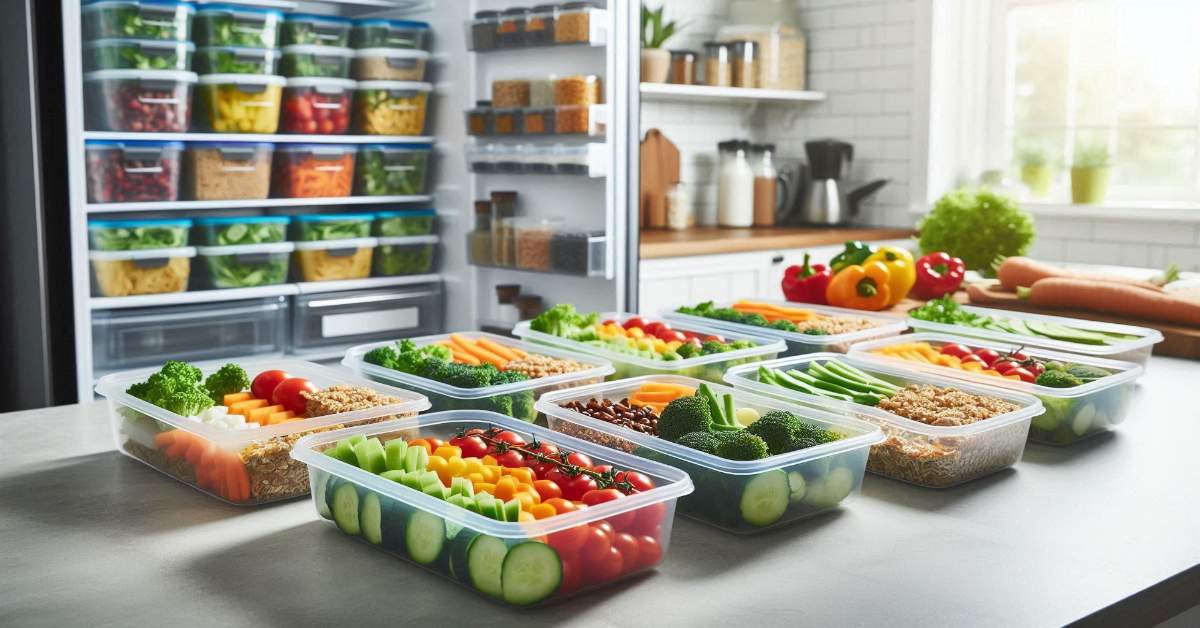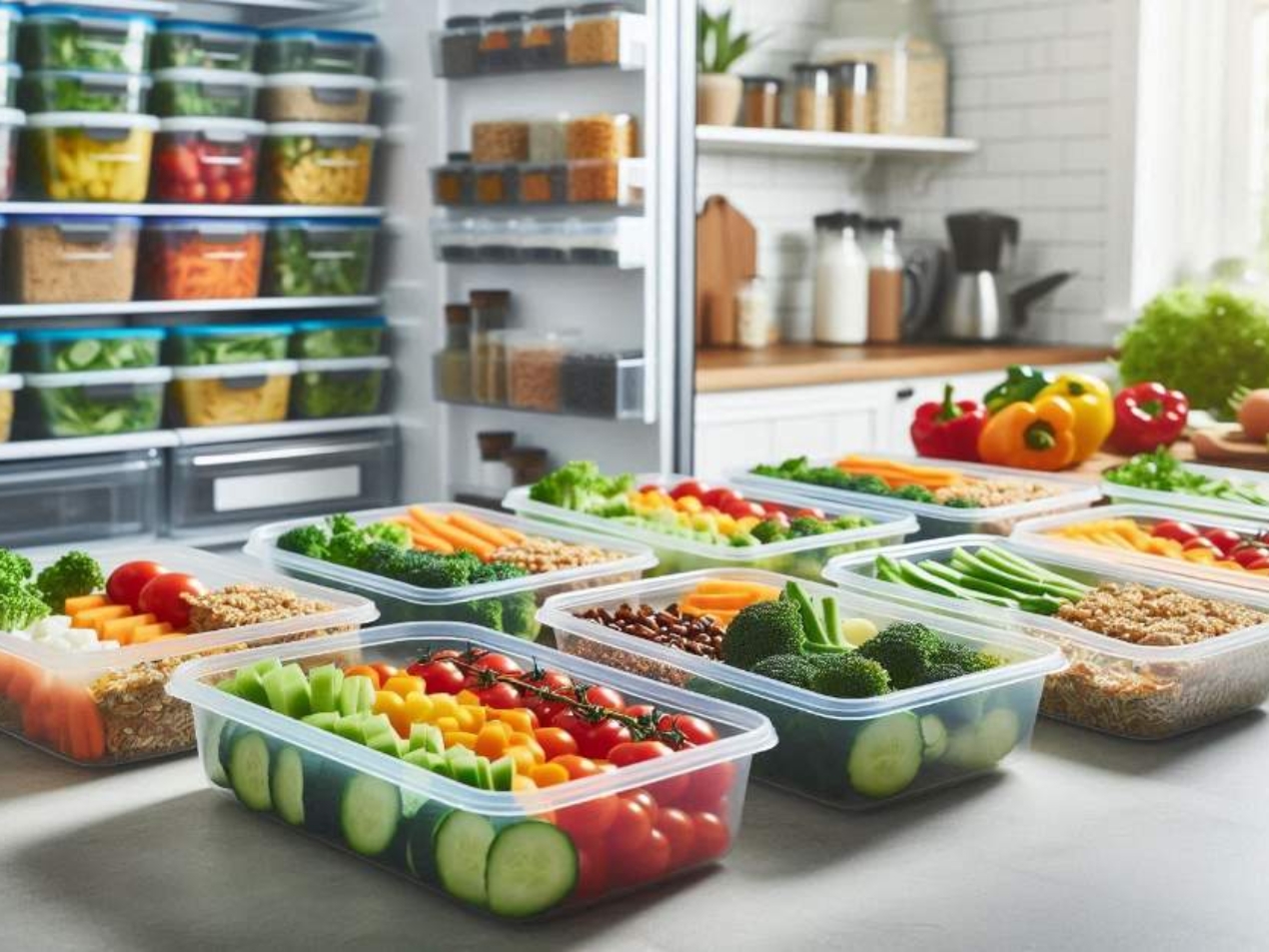Introduction In today’s fast-paced world, staying organized and saving money can feel like an uphill battle. One simple solution that addresses both concerns is meal prepping. By planning and preparing your meals in advance, not only do you cut down on time spent cooking every day, but you also eliminate unnecessary expenses on takeout or impulse grocery buys. This Meal Prep Guide will walk you through the essentials of meal prepping, helping you stay organized and save money in the long run.
Overview: The Role of Meal Prep in Today’s Lifestyle Meal prepping has evolved into a vital tool for those juggling busy schedules, fitness goals, and financial limitations. It’s more than just preparing food; it’s about making conscious decisions about your diet and your wallet. Whether you are a health enthusiast, a busy professional, or a parent, meal prepping allows you to take control of your time, nutrition, and budget. With this guide, you’ll learn how to plan and prepare meals that are cost-effective, nutritious, and easy to implement into your daily routine.
What is Meal Prepping?
Meal prepping refers to the practice of preparing meals or meal components ahead of time. This can range from cooking entire meals to portioning out ingredients or snacks for the week ahead. It’s an efficient way to ensure you have healthy, ready-to-eat food on hand, eliminating the stress of figuring out what to eat each day.
Benefits of Meal Prepping
Meal prepping offers several advantages:
- Time Management: Spend a few hours prepping during the weekend and free up time during the week.
- Money-Saving: Buying ingredients in bulk and cooking at home significantly cuts down on the costs associated with eating out.
- Healthy Eating: When you prep in advance, you have full control over your ingredients, helping you maintain a balanced diet.
- Reduce Food Waste: By planning your meals, you only buy what you need, which leads to less food waste.
Essential Meal Prep guide Tools
Having the right tools can make meal prepping smoother:
- Storage Containers: Invest in a variety of BPA-free, microwave-safe containers that can store different meal portions.
- Meal Prep Planner: Use a digital or physical planner to track what meals you’ll have each day of the week.
- Slow Cooker or Instant Pot: These can be lifesavers, allowing you to prep large batches of meals with minimal effort.

How to Plan a Weekly Menu
Planning is key to successful meal prepping. Here are steps to get started:
- Choose Recipes: Look for meals that can be easily made in bulk and stored for later consumption.
- Balance Nutrition: Ensure you are including all food groups: proteins, carbs, healthy fats, and vegetables.
- Make a Grocery List: Once you’ve selected your recipes, list the ingredients and buy them in one grocery trip.
Budget-Friendly Meal Prep Ideas
When meal prepping, you don’t have to break the bank. Here are some budget-friendly ideas:
- Rice and Beans: Affordable and packed with nutrients, rice and beans make a great base for multiple meals.
- Oatmeal: Pre-portion oatmeal for breakfast. Add fruits or nuts for a variety of flavors.
- Roasted Vegetables: Buy seasonal vegetables and roast them in bulk for easy side dishes throughout the week.

Time-Saving Meal Prep Hacks
Meal prepping doesn’t have to be time-consuming if you use these hacks:
- Double Batch Cooking: Make double portions of your recipes so you can freeze some for later use.
- Pre-Cut Ingredients: Purchase pre-cut vegetables or do the chopping in one go to save time during the week.
- One-Pot Meals: Utilize one-pot or one-pan meals to minimize the number of dishes to clean.
How to Store Prepped Meals Safely
Proper storage is critical to ensure your meals remain fresh throughout the week:
- Label Containers: Mark each container with the contents and date to keep track of freshness.
- Use the Freezer: Don’t hesitate to freeze meals that you won’t eat within a few days to preserve their shelf life.
- Refrigeration Tips: Store meals in airtight containers in the fridge and keep raw and cooked foods separated.

Do You Know?
Did you know that meal prepping can reduce stress levels? By planning your meals in advance, you eliminate the daily worry of “what’s for dinner,” freeing up mental space to focus on other important tasks.
Conclusion
Meal prepping is an effective way to take control of your health, time, and finances. By dedicating a few hours each week to preparing meals, you’ll ensure that you have nutritious, ready-to-eat food on hand, without the stress of daily cooking. Incorporating this Meal Prep Guide into your routine will allow you to stay organized and save money in the long term. So, whether you’re prepping for a busy workweek or trying to stick to a fitness goal, meal prep is the ultimate tool for success.






Add a Comment